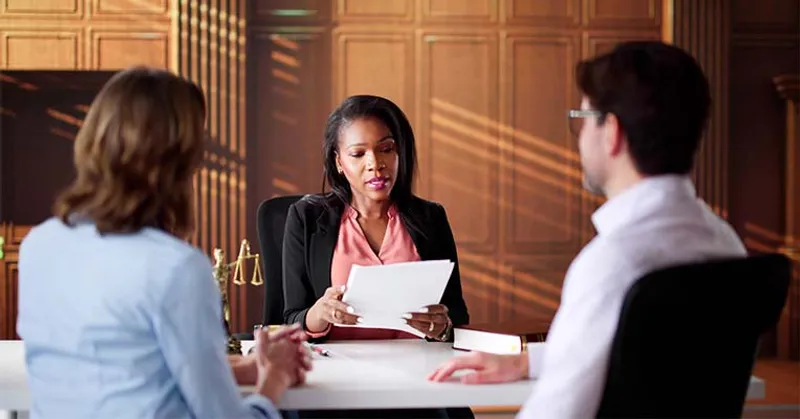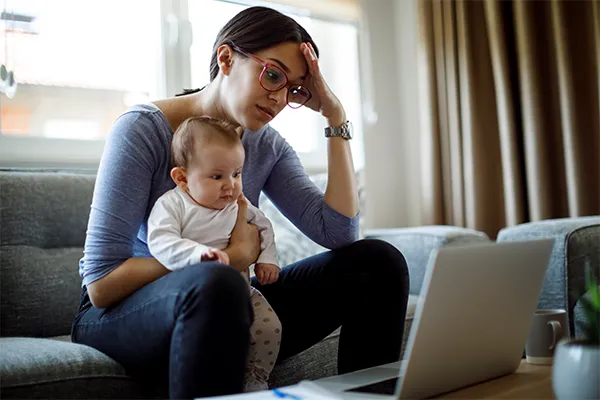What is a Parenting Coordinator?
How high conflict co-parents can benefit from parenting coordination.
- 5.5 min read
- custody
- family law

A parenting coordinator (PC) is a third-party professional who helps co-parents resolve disputes and learn how to collaborate more efficiently. Co-parents can work with PCs by choice, although the courts often order their involvement in family law cases that are heated or complex.
A PC can be a family law attorney, mental health professional, or other expert with a background in child development or shared custody. Learn more about parenting coordination, some of its alternatives, and how PCs can help with significant disagreements or high conflict situations.
What does a parenting coordinator do?
According to the Association of Family and Conciliation Courts (AFCC), a parenting coordinator supports co-parents after a divorce or separation, especially those who are in high conflict. Sometimes called a parental or parent coordinator, PCs work with both parents to reduce conflict and navigate their parenting plan with reduced court involvement.
Depending on each unique situation, PCs can offer multiple angles of support to the co-parents they work with, such as:
- Assessment
- Education
- Case management
- Conflict management
- Dispute resolution
- Decision-making
Parenting coordinators strive to help co-parents take a child-centered approach to custody that prioritizes their children’s best interests. PCs take a unique approach by supporting parents with mental health and legal concerns related to their shared custody situations. Ultimately, a PC’s goal is to support and protect healthy parent-child relationships.

The AFCC says that PCs can help co-parents and children by:
- Facilitating the resolution of disputes in a timely manner
- Educating both parents about their children’s needs
- Making decisions with prior approval from the courts or parents
Who can be a parenting coordinator?
The AFCC Guidelines for Parenting Coordination specify that a PC must be a licensed or certified professional who works in mental health, family law, or mediation. A PC is meant to be a neutral third party, and national guidelines state that they cannot serve any co-parents’ family members in another role to avoid potential conflicts of interest.
Additional AFCC requirements for PCs to meet and maintain can include:
- Practical experience with high conflict family cases
- Training and experience in family mediation
- Comprehensive parenting coordination training
- A thorough understanding of laws in their jurisdiction
- Relevant continuing education courses
Is a PC the same as a decision maker?
Some jurisdictions and court systems may appoint or recommend a decision maker (DM) or parenting coordinator/decision maker (PC/DM). The main difference between a PC and a DM or PC/DM is their authority. A PC can sometimes make decisions with the court’s approval, while a DM or PC/DM can make enforceable decisions as an arbitrator would.
How does parenting coordination work?
You and your co-parent can begin the parenting coordination process in one of two ways: you can mutually agree to hire one, or the courts will appoint one for your case with approval from both of you. Some states enable judges to appoint a PC without mutual consent, so check with your local clerk of courts for more information on the process.

These are some of the reasons why a court may appoint or recommend a PC for you and your ex:
- You and your ex struggle to communicate or collaborate
- Litigation is excessive, especially for a parenting plan
- Mediation is unsuccessful or inappropriate for the situation
- Your parenting plan isn’t followed consistently
Once the court introduces a PC, you and your ex will meet with them on a regular or occasional basis. Depending on your court order, you could have meetings every few weeks or as needed whenever an issue arises. Co-parents may be required to work with PCs for around one to two years, but the specific timeframe often varies by state and court system.
Going through parenting coordination can help you learn how to:
- Communicate with your ex more efficiently
- Meet your child’s psychological and developmental needs
- Manage conflict without your child’s involvement
- Co-parent more productively after your separation
Is parenting coordination the same as mediation?
Parenting coordination is similar to mediation, but the main difference is in each option’s overall timeframe. Mediators are often appointed or hired to help co-parents with a specific issue, and they’re done once the problem is resolved. PCs typically serve in a more long-term role that involves enforcing an existing order or providing ongoing support.
How can a parenting coordinator help?
Working with a PC or PC/DM can be an incredible asset, particularly if you and your ex deal with high conflict co-parenting dynamics. With their support, your shared parenting situation can avoid common mistakes and improve for everyone involved—especially your children. Here are 4 ways your situation could improve with the help of a PC.

1. Spend less time (and money) in court
Attending court hearings can take up a lot of your time, and child custody court case costs can quickly become overwhelming. Most of your work with a PC happens outside the courtroom, so you and your ex can still make progress without going to court repeatedly. If you have to go back for valid reasons, the process is more streamlined with your PC’s help.
Working with a PC and reducing your time spent in court can also help reduce family law attorney costs. Parenting coordination is often a more affordable option than traditional legal assistance in most states, and the fees are typically split between you and your ex. In some jurisdictions, PC services can even be offered for free or at a lower cost.
2. Prioritize your child’s best interests
When going through high conflict conversations and situations with your ex, it can be easy to lose sight of what matters most—the best interests of your kids. Issues like bad-mouthing can cause significant stress, set back their divorce recovery progress, and negatively impact their development and overall well-being in the present and future.
A PC’s primary purpose is to ensure you and your co-parent act in a way that supports and prioritizes your children. As a neutral third party, your PC can help keep discussions focused on your kids and the outcomes that will benefit them most. Parenting coordination can also teach you and your ex how to support their mental health.
3. Have an easier time making decisions
Even if you and your ex use parallel parenting, there will be times when you need to interact to make major decisions for your kids. Reaching a compromise can feel like an uphill battle or even an impossible task. Depending on how long it takes to make the joint decision, your children may be stuck in the middle or witness fighting between you and your ex.

In addition to protecting your kids from high conflict, working with a PC can streamline the decision-making process. Your PC can ensure you and your co-parent stay on topic, acknowledge biases, and find a solution that works best for your children. Instead of being stuck at a standstill, you and your ex can work with your PC to make things smoother.
4. Learn how to manage co-parenting conflicts
Being in a conflicted co-parenting situation is often emotionally and mentally draining. Whether you have disagreements with your co-parent on a weekly or daily basis, you may feel trapped in a vicious cycle of conflict. Unless you learn how to identify and avoid potential triggers for you or your ex, that cycle can continue with no end in sight.
Working with a PC can break the cycle of conflict and teach you practical high conflict co-parenting tips that will support you well after you finish parenting coordination. From developing a mindset and strategies to adopting methods like grey rock or yellow rock, learning from your PC can set you up for long-term success in handling conflict and protecting your mental health.
Boost your parenting coordination with TalkingParents
Working with a PC can mark the start of a healthier situation for you and your children. It’s vital to learn from the process and how you can apply different techniques to make your co-parenting situation more productive. If you want to make your parenting coordination process smoother and more beneficial in the long run, a co-parenting app can help.
TalkingParents offers comprehensive features in a single service that take the hassle out of organizing all things shared parenting. Every interaction is documented on your Unalterable Record, making it easier to share important information with your PC and other professionals. Combined with parenting resources that cover the ins and outs of topics like family law and custody, TalkingParents connects you to a complete network of services and support.